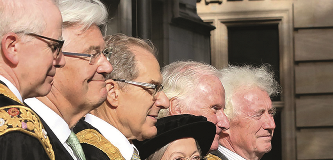
Dr Arnheim uses two Supreme Court decisions and a Court of Appeal decision to explore his thesis. He claims that all three have in common ‘injustice resulting from either the absence of principle or ignoring principle’.
The solution, according to Dr Arnheim, is for Parliament to ‘assert its power to guide the judges by means of legislation, on the basis of the sovereignty of Parliament, the bedrock principle of the UK constitution’.
Read the article here.










